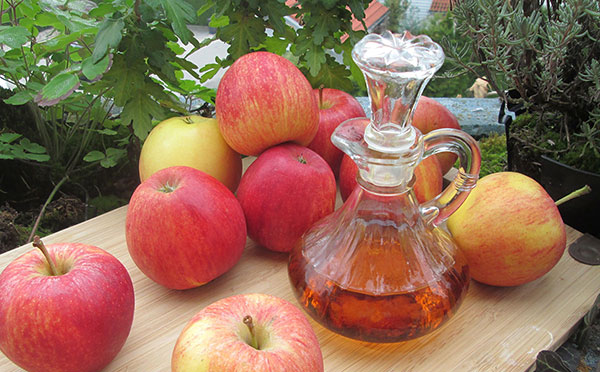Season 1, Episode 3
Are GMOs Dangerous?
Scientists tell us genetically modified foods are safe, but how can we know whether or not to trust that?
It's far and away the most contentious subject in pop foodie-ism: whether genetically engineered crops are a good thing or a bad thing. On one side you have the farmers and scientists touting the benefits, and on the other side are consumer groups and activists claiming a long list of dangers and demanding warning labels. Who can you believe?
A Genetically Modified Organism is one on which we used some technique to change the genome of a crop in order to improve some trait. There are a lot of ways we've been doing this, some for thousands of years.
The most familiar is crossbreeding, where we take the pollen from one species and put it on the female part of a closely related species, to create a new species. Many of the apples you enjoy were genetically engineered centuries ago using crossbreeding.
Mutagenesis is where we use radiation or chemicals to intentionally cause mutations and then look for beneficial traits that might have arisen. You've probably had grapefruit that you owe to mutagenesis.
Your watermelons came from polyploidy where we give a crop extra sets of chromosomes. Polyploidy and mutagenesis are two types of genetic engineering used in organic farming — a fact that lot of people don't realize.
Your red cabbage came from protoplast fusion where we modify cells in the pollen. Your corn came from transgenesis is where we take genes from one organism and move them into the DNA of another organism. The newest version of this, genome editing using the CRISPR system, lets us cut into DNA with unprecedented precision.
So are these dangerous? Well, let's add up the death toll from eating apples, grapefruit, watermelons, cabbage, and corn over the past hundred or so years. Hmm. We test them exhaustively, thus, there hasn't been a single observable health consequence in all that time.
Think of a famous novel. Is the quality of that novel determined by whether it was typed on a word processor or a typewriter? Of course not. We also don't judge people by whether they were conceived with in-vitro fertilization, and neither does it makes sense to judge crops the same way. Instead, judge food crops by their nutritional content. So far, there's never been any safety-related reason to avoid GMO crops.
And give some credit to farmers and agriculturists. It's just possible they know what they're doing.
References
Borel, B. "Core Truths." Popular Science. 1 Jul. 2014, Volume 285, Number 1.
Editors. "Genetic Engineering Companies." Resources. Biology Fortified, 2 Jul. 2014. Web. 2 Aug. 2014. <http://www.biofortified.org/resources/genetic-engineering-companies/>
Harmon, A. "A Race to Save the Orange by Altering Its DNA." The New York Times. 28 Jul. 2013, Volume 162, Number 56,211: 1, 16-17.
Lallanilla, M. "GMOs: Facts About Genetically Modified Food." Live Science. Purch, 1 Nov. 2013. Web. 2 Aug. 2014. <http://www.livescience.com/40895-gmo-facts.html>
Nicolia, A. et al., "An overview of the last 10 years of genetically engineered crop safety research." Critical Reviews in Biotechnology. 13 Sep. 2013, Vol. 34 No. 1.




